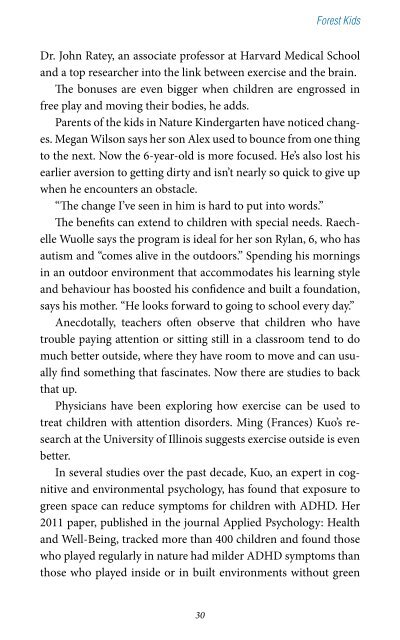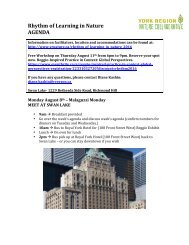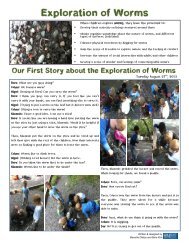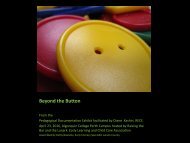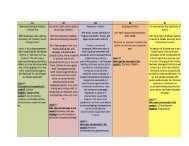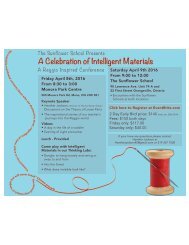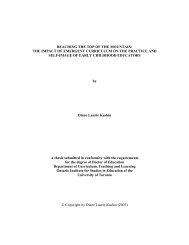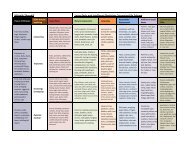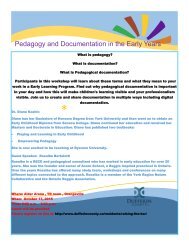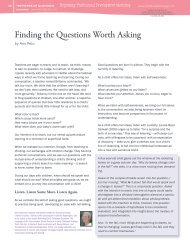Forest Kids
You also want an ePaper? Increase the reach of your titles
YUMPU automatically turns print PDFs into web optimized ePapers that Google loves.
<strong>Forest</strong> <strong>Kids</strong><br />
Dr. John Ratey, an associate professor at Harvard Medical School<br />
and a top researcher into the link between exercise and the brain.<br />
The bonuses are even bigger when children are engrossed in<br />
free play and moving their bodies, he adds.<br />
Parents of the kids in Nature Kindergarten have noticed changes.<br />
Megan Wilson says her son Alex used to bounce from one thing<br />
to the next. Now the 6-year-old is more focused. He’s also lost his<br />
earlier aversion to getting dirty and isn’t nearly so quick to give up<br />
when he encounters an obstacle.<br />
“The change I’ve seen in him is hard to put into words.”<br />
The benefits can extend to children with special needs. Raechelle<br />
Wuolle says the program is ideal for her son Rylan, 6, who has<br />
autism and “comes alive in the outdoors.” Spending his mornings<br />
in an outdoor environment that accommodates his learning style<br />
and behaviour has boosted his confidence and built a foundation,<br />
says his mother. “He looks forward to going to school every day.”<br />
Anecdotally, teachers often observe that children who have<br />
trouble paying attention or sitting still in a classroom tend to do<br />
much better outside, where they have room to move and can usually<br />
find something that fascinates. Now there are studies to back<br />
that up.<br />
Physicians have been exploring how exercise can be used to<br />
treat children with attention disorders. Ming (Frances) Kuo’s research<br />
at the University of Illinois suggests exercise outside is even<br />
better.<br />
In several studies over the past decade, Kuo, an expert in cognitive<br />
and environmental psychology, has found that exposure to<br />
green space can reduce symptoms for children with ADHD. Her<br />
2011 paper, published in the journal Applied Psychology: Health<br />
and Well-Being, tracked more than 400 children and found those<br />
who played regularly in nature had milder ADHD symptoms than<br />
those who played inside or in built environments without green<br />
30


